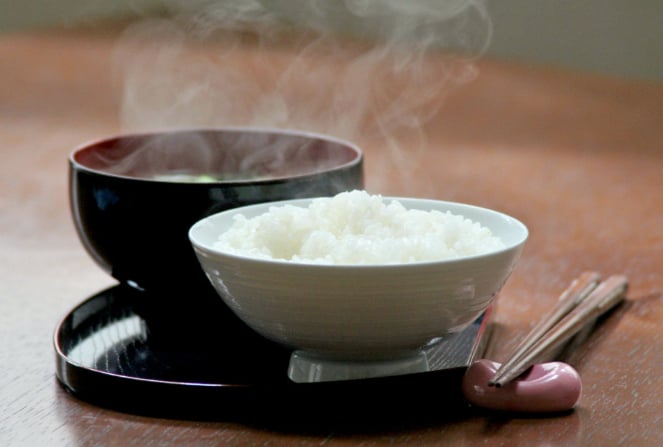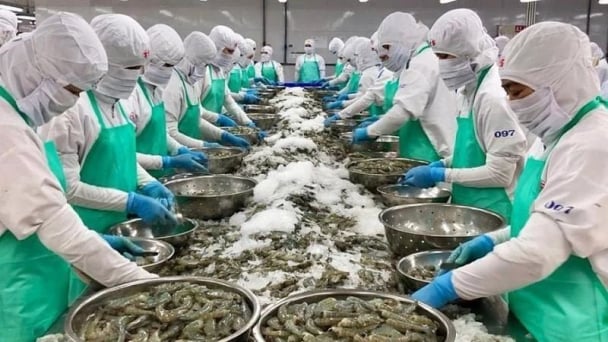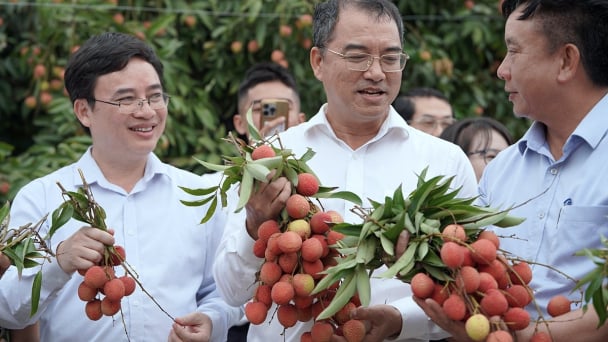June 3, 2025 | 11:54 GMT +7
June 3, 2025 | 11:54 GMT +7
Hotline: 0913.378.918
June 3, 2025 | 11:54 GMT +7
Hotline: 0913.378.918

File photo shows a bowl of steamed rice and miso soup. Kyodo.
The plan to boost exports through improved production is also seen as a way to secure sufficient domestic supply of the Japanese staple to avoid shortages.
In its draft for a medium- to long-term basic plan for agriculture, the government kept intact its goal of raising the country's food self-sufficiency rate to 45 percent on a caloric intake basis by 2030 from 38 percent in fiscal 2022.
The figure refers to the ratio of domestically consumed food supplied by producers in the country.
The draft of the basic plan, revised roughly every five years, highlighted the need to enhance productivity in addition to expanding exports, noting that geopolitical risks and a decline in domestic farmers have destabilized food production and supply in the country.
The government aims to increase the total value of agricultural and food exports from 1.5 trillion yen in 2024 to 5 trillion yen in 2030, while boosting food-related spending by inbound tourists from 1.6 trillion yen to 4.5 trillion yen.
For rice production, the plan presented to the Liberal Democratic Party gathering aims to increase the number of farmers managing fields of 15 hectares or larger and reduce production costs from 11,350 yen to 9,500 yen per 60 kilograms to compete with cheaper imports.
Japan consumes approximately 6.6 million tons of rice a year, meaning the 350,000-ton export target would be equivalent to around half a month's domestic consumption.
While there is currently a domestic rice shortage, long-term demand is expected to decline due to Japan's shrinking population, making expanding exports a key focus.
Previous basic plans have used the food self-sufficiency rate as a key numerical target, but the latest one will feature several goals following the amendment to a related law last May. The government will seek Cabinet approval by the end of the month.
KyodoNews

(VAN) The U.S. is the largest market for Vietnamese cashew nuts. However, when exports to the U.S. encounter difficulties due to reciprocal tariffs, Vietnamese cashews still have many other potential markets.

(VAN) Reciprocal tariffs present a significant obstacle to Vietnam's wood exports to the United States; however, domestic wood businesses are endeavoring to preserve their market share in this critical market.

(VAN) Businesses in Vietnam are attempting to export rice to the United States ahead of the implementation of reciprocal tariffs, while remaining their optimism regarding this critical market.

(VAN) From containers of cashew nuts, shrimp to in-depth technical dialogues, agricultural cooperation between Vietnam and the United States is entering a period of sustainable and two-way development.

(VAN) After the talks on May 28, Vietnam successfully exported its first batch of frozen durians to China, marking a new milestone in agricultural trade cooperation between the two countries.

(VAN) Several major companies, such as Red Dragon and Ameii Vietnam, have signed purchasing agreements for the 2025 season, targeting markets including Japan, the United States, and the EU.
/2025/05/30/5010-5-173638_943.jpg)
(VAN) On May 29, at the GO! My Tho Trading Center, the Tien Giang Department of Industry and Trade, in collaboration with Central Retail Corporation, held the opening ceremony of the 3rd Fruit Festival 2025.